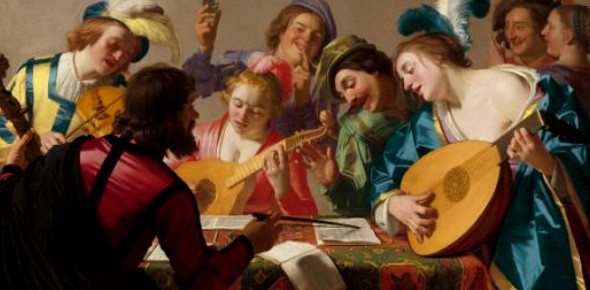Music has been an integral part of human culture since time immemorial. It is a language that transcends borders, cultures, and time, and has the power to evoke emotions and bring people together. The history of music is a rich tapestry of styles, genres, and traditions that have evolved over thousands of years. In this article, we’ll explore the fascinating world of music history and trivia, delving into its origins, evolution, and impact on society.
The Origins of Music: A Brief Overview
The origins of music can be traced back to ancient civilizations such as the Sumerians, Egyptians, and Greeks. These cultures believed that music was a divine gift, and it was used in religious ceremonies, festivals, and as a form of entertainment. In the Middle Ages, music evolved into a more structured form, with the development of musical notation and the establishment of the church as a patron of the arts.
The Renaissance and Baroque Eras: A Time of Innovation and Creativity
The Renaissance and Baroque periods were a time of great innovation and creativity in music. Composers such as Bach, Handel, and Vivaldi produced some of the most enduring works in classical music, while the rise of opera marked a new era of theatrical performance. In the 18th century, the Classical era saw the emergence of new forms such as the symphony and the sonata, with Mozart and Beethoven leading the way.
The Birth of Modern Music: Jazz, Blues, and Rock and Roll
The 20th century saw the birth of modern music, with the rise of jazz, blues, and rock and roll. These genres were born out of the African American experience and represented a break from traditional forms of music. Jazz, in particular, had a profound influence on music, with its emphasis on improvisation and the use of complex harmonies. The rise of rock and roll in the 1950s marked a new era of popular music, with artists such as Elvis Presley and Chuck Berry becoming household names.
The Evolution of Music in the Digital Age
The advent of the internet and digital technology has had a profound impact on the music industry. The rise of streaming services such as Spotify and Apple Music has transformed the way we consume music, while social media has allowed artists to connect with fans in new ways. The proliferation of music-making software has also made it easier than ever for aspiring musicians to create and distribute their own music.
Music Trivia: Fun Facts and Interesting Tidbits
Did you know that the first music video ever aired on MTV was “Video Killed the Radio Star” by The Buggles? Or that the song “Happy Birthday to You” is copyrighted and generates millions of dollars in royalties every year? Music trivia is full of interesting tidbits and fun facts that can fascinate music lovers of all ages.
The Impact of Music on Society
Music has always played an important role in shaping society, from its use in religious and political ceremonies to its ability to bring people together. Music has also been used as a tool for social change, with artists such as Bob Dylan and Marvin Gaye using their music to address issues such as civil rights and war. The power of music to evoke emotions and inspire change is one of its most enduring legacies.
Conclusion
Music is an art form that has transcended time and culture, bringing joy and meaning to people’s lives for thousands of years. From its humble origins to its current role in the digital age, music has always been a reflection of the human experience. Whether you’re a fan of classical music, jazz, or rock and roll
